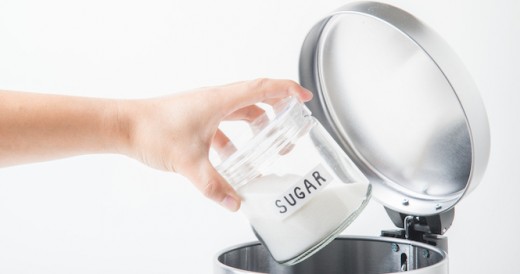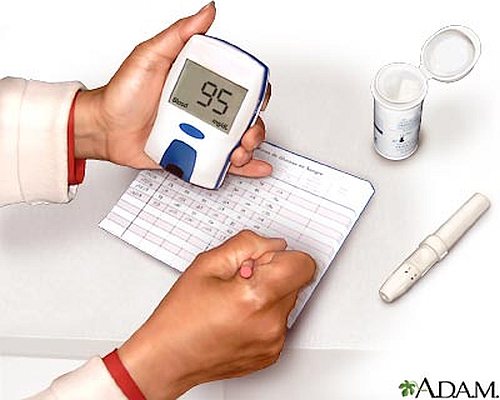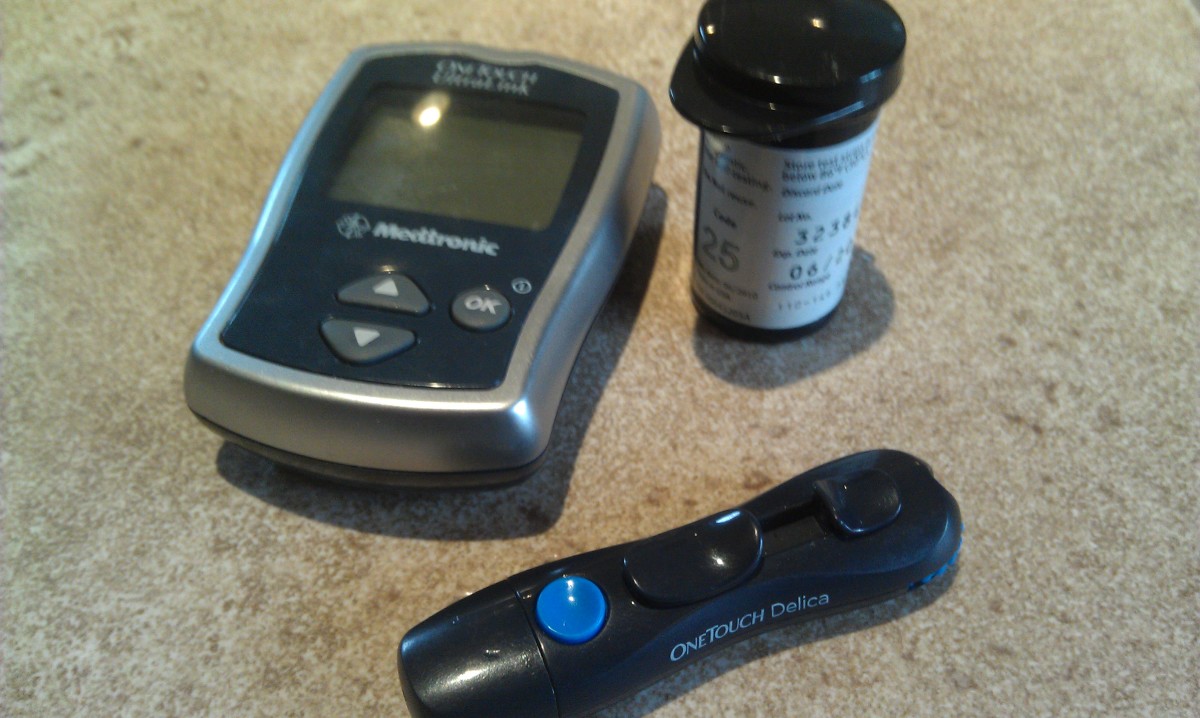Diabetes Myths and What Not to Believe

When a person is first diagnosed with diabetes, he or she is given a lot of information about the disease. Some of it may be true, and then some of it might not be true. People mean well, but they might be giving you the wrong information based on how they are personally handling the disease.
Make sure the information you are receiving and embracing comes from a reliable source.

Reliable Sources for Diabetes Information
The American Diabetes Association (ADA) is a reliable source when it comes to giving statistics and explaining the do's and don'ts about diabetes that affects over 30 million people.
The ADA is the nation's leading organization that provides diabetes education, advocacy, and research. If you have been recently diagnosed with Type 2 diabetes, let this organization be at the top of your list when it comes to reliable sources.
The Centers for Disease Control (CDC) is another reliable source of information not only for diabetes but for other diseases as well.
Your primary physician knows your overall health history and can provide information that affects you personally.

Myth: Sugar Causes the Disease
It is a myth that eating too much sugar causes diabetes, but it is easy for people to be misinformed and think that it can. Eating sugar doesn't cause diabetes, according to Prevention magazine and the major diabetes associations.
While sugar does not cause diabetes, people are advised to limit their intake because eating too much sugar can lead to obesity, which is a risk factor for Type 2 diabetes, according to the American Diabetes Association.
Sweet snacks and sugary drinks can increase diabetes risk. A British medical journal study found that consuming just one sugar-sweetened drink a day raises Type 2 diabetes risk by 18 percent.
The Truth
People consume more sugar than they think because sugar is hidden in many foods and drinks.
Diabetics should monitor how much sugar they eat, but they do not have to give up eating everything that contains sugar for the rest of their lives, according to Web MD.

Myth: Diabetics Can Never Eat Desserts Again
One of the first myths diabetics are told is that they should never eat desserts again. Desserts for diabetics don't have to be completely off limits. They can be eaten in small portions occasionally.
According to Diabetic Living, desserts can be made with diabetics in mind such as diabetic cookies, cakes, tortes, and tarts.
The Truth
Diabetics don't have to give up desserts for the rest of their lives. They can eat them on special occasions and in moderation.

Myth: Sleep Is Not Impacted
It is a myth to think your sleep pattern has nothing to do with diabetes. The Centers for Disease Control and Prevention report that 35 percent of Americans get fewer than the recommended 7-9 hours of sleep each night. Studies suggest that the lack of sleep affects diabetes.
The Truth
Diabetes Forecast reported that not getting enough sleep could affect blood glucose levels. People with poor sleep patterns tend to have a higher A1C than those who have a healthier sleep schedule.
The A1C is the average reading of blood glucose over a two-to-three-month period.
Myth: Diabetics Will Go Blind
Diabetes can affect a person's eyes over time, and those with diabetes do have a higher risk of eye problem because high blood sugar can also lead to cataracts and glaucoma.
Regular eye exams and checkups will keep the risks low. If problems do develop, your eye doctor will suggest treatments.
The Truth
About 40 percent of people with diabetes are more likely to suffer from glaucoma than people without the disease. The risk is also greater in older adults with the disease. The American Diabetes Association recommends patients keep blood sugar levels under control and see an eye care professional once every six months.
Myth: Disabetics Will End Up With Amputated Feet
People who have just been diagnosed with Type 2 diabetes might not know that diabetes could affect every part of their body, including the eyes and feet. It is a myth to think that diabetics will automatically end up with amputated feet.
The Truth
Those with diabetes should get their feet checked at least once a year to see if the disease is affecting their feet. Nerve damage and poor blood flow happen when a person's blood level is too high. However, people who manage the disease might not have foot problems, according to the National Institute of Diabetes and Digestive and Kidney Diseases.

Myth: All Diabetics Have a Memory Problem
It is a myth to believe that everyone with diabetes has or will have memory loss. There is a link between memory and diabetes, but it is not a rule that every person who has the disease will also have memory loss.
Loss of memory can result when a person's blood glucose level is too high or too low. Memory loss could be avoided if a person's blood sugar level is kept stable.
The Truth
Researchers who conducted a study at Johns Hopkins University in Baltimore, Maryland discovered that people with diabetes over 70 years old did show signs of memory loss. However, that doesn't mean that everyone with diabetes will experience memory loss. Therefore, it is important for diabetics to monitor the disease to keep it from going too high or too low. In the study, age was also a factor. With or without diabetes, older people do tend to forget more often than younger people.
Myth: Diabetics Have No Sex Life
People have heard that diabetes affects one's sexual urges and that people with diabetes have no sex life at all. Patients should discuss their concerns with their doctors because diabetes affects people in different ways. Doctors may prescribe medications to treat any sexual problems that are related to diabetes. Since it is a sensitive subject, most people don't discuss it with their physicians.
The Truth
Diabetes can have an effect on a person's sex life. Up to 50 percent of men and 25 percent of women do report some kind of sexual problems associated with diabetes. Having diabetes doesn't have to keep diabetics from enjoying a healthy sex life. However, they should discuss any concerns with their doctor instead of living with it in silence.

Myth: You Don't Need to Check Your Blood Sugar Daily
We have heard it said that when you are on a diet, you shouldn't weigh yourself every day. Some diabetics believe that same rule applies when it comes to checking their blood sugar on a daily basis. It is a myth to believe checking your blood sugar level is like weighing yourself. It is beneficial so doctors can make adjustments, if necessary.
The Truth
According to the American Diabetes Association, those with diabetes should make it a habit to check their blood sugar level every day. Some patients check theirs twice a day to determine if their glucose level is too high or too low.
This content is accurate and true to the best of the author’s knowledge and does not substitute for diagnosis, prognosis, treatment, prescription, and/or dietary advice from a licensed health professional. Drugs, supplements, and natural remedies may have dangerous side effects. If pregnant or nursing, consult with a qualified provider on an individual basis. Seek immediate help if you are experiencing a medical emergency.








